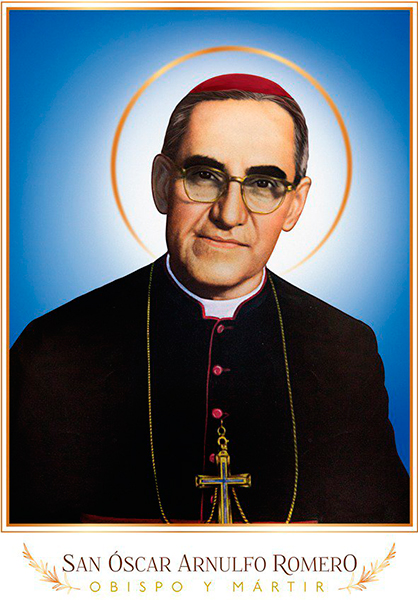You’ve
all probably heard that familiar adage that a pessimist says a glass is
half-empty and an optimist says that it’s half-full. Well, as Christians, we’re not called to be
pessimists or optimists. We’re called to be something much more exciting; we’re
called to be people of hope. A person of hope doesn’t deal in these half
measures: hope proclaims that the glass can be filled. Christian hope is assured that God can fill
us up, that through the blood of Christ out poured, we can be filled to
overflowing with holiness and love. God
will fill us. That’s what Jesus means
when he says that “All things are possible with God.”
But
let’s back up a bit. You can buy shirts that say on them, “Life is good.” In
fact, the company that makes these partners with other organizations to add
their branding and gives some of their proceeds to charity. So, you can even
buy these shirts with the insignia of a certain Midwestern Catholic University
that beat Pitt at football last night, that I won’t name on them (your choice
of interlocking initials or leprechaun). And when I first saw these, I thought,
“well, that’s half the story I’d want us, as a Catholic school, to tell.” And
it is important. It’s important to look at our world, to look at ourselves, and
look for what’s good, what’s already half full, and give thanks for that. And,
especially when it comes to our gifts, to ask how we’re meant to use those in
the service of the church and the world. The giving thanks is fuel for the
generosity.
But,
it’s only half the story, because we’re not called to be Polyannas, and ignore
the emptinesss, the very real lack in our world, in ourselves. We should certainly
look for the sin, but we should also look at the emptinesses that aren’t sin,
the brokenness. We should repent of what needs to be repented of, we should
lament it all, we should dare to ask God to act to change these things, and
dare to ask how He might use us to do that.
Hope is
what lets us be realists. It’s what lets us risk really paying attention, to
ourselves and to one another. And the reality is, that when we stop and look at
our world, at our lives, we see so much that is good, and so much that falls
short. We see signs of God’s goodness,
and we see sin and wickedness and natural evil that cries out to God. And if we ever, in this life, fail to see one of other of those, we’re not looking
hard enough. And hope says that this
world, with its mix of fullness and emptiness can be made full. Hope says that
each of us, with our mix of fullness and emptiness will be made full. God will
make us overflow.
The rich
man that runs up to Jesus is not a man of hope.
He seems to start as a man of optimism.
He knows the answer to his question, he knows the commandments. And he’s basically a good guy, he hasn’t
broken any of the 10 commandments (and he hasn’t committed fraud either, which
is kind of a curve ball Jesus throws him).
He’s doing well morally, and he knows it. And that’s what makes it impossible for him
to have hope. All things are possible
for God, but this man right now is too much of an optimist to have hope. He doesn’t need to have his glass filled up,
because he’s convinced it’s already full!
He can see nothing in himself to lament.
But,
then Jesus opens up a hole. That word of
God, piercing, as Hebrews put it, exposing what’s between the joints and the
marrow, like a spiritual x-ray. He shows
him that he’s owned by his possessions.
He’s got a lot of stuff, and it has more of a claim on him than Jesus
does right now. Maybe he’s even got a
natty t-shirt from Galilee-U proclaiming “hachayyim tovim!” But he doesn’t own it, it owns him, and it’s
making him less free, and he doesn’t even know it.
And
then, he does. Jesus shows him, and
everything seems to coming crashing down.
He goes away sad. He’s realized
that he can’t do everything, that he can’t write his own ticket into eternal
life. He doesn’t reach lament, but
lament sees the emptiness, the lack of freedom he has in his case, as room for
God to fill. He leaves. But, God doesn’t leave us. We have hope: God can fill us up.
Yesterday, Pope Francis
canonized seven new saints. One among them was Saint Oscar Romero, the bishop
from El Salvador who was an outspoken advocate for justice and was murdered, by
people he had spoken out against while saying Mass. A lot of people talk about
Romero’s conversion, when he started become a lot more outspoken on issues of
justice, but he would always say it was no conversion, he grew up a Catholic
Christian and never became anything else, but what he experienced was an
evolution in pastoral fortitude. A growth in shepherdly courage. God filled him
up a little more. I went back this week and re-read his
last homily, never completed because he was shot during it. Hope was
one the last words he said. He cited Gaudium et Spes: “On this earth
that kingdom is already present in mystery. When the Lord returns, its
perfection will be accomplished” Present in mystery, in hiddenness: there’s
really something in our glass, but there’s some much more fullness to come.
Romero concluded: “This is the hope that inspires us as Christians.

No comments:
Post a Comment